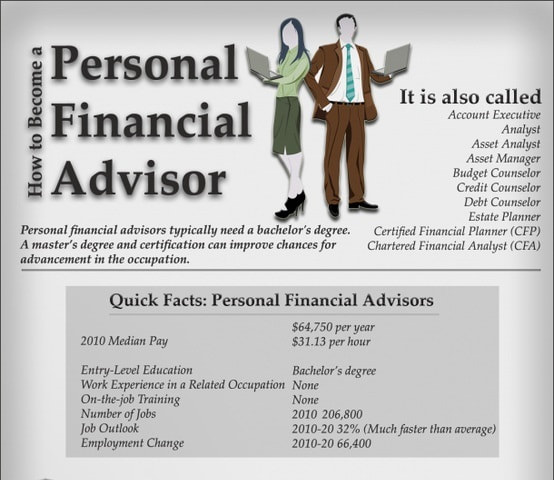
Technology has made it a vital part of society to use technology to improve financial services. Fintech's rise has made financial services easier to access, but it raises concerns about consumer protection. Gensler, the nominee for the SEC to lead it, outlined a timeline that outlines the latest innovations in the financial sector. Gensler says that financial technology, or fintech, dates back to the creation money.
Fintech is an acronym for "financial tech"
Fintech is a term for any technology used to deliver financial services. This includes online banking as well as cryptocurrencies and the checking of savings accounts. It is hard to identify Fintech and it is controversial. Word Spy claims that Fintech was first mentioned in the mass media on August 11, 1986, when it was first used by Peter Knight, the Sunday Times editor. Many believe that this term originated in the banking sector, where it was used to transfer international money through the SWIFT program.
Fintech has changed the traditional financial service industry. It has also affected the way consumers buy coffee and manage their finances. Fintech was originally used to refer to technologies used in the back-end systems of traditional financial institutions. But today, the term can be applied to consumer-facing apps and services. Future fintech applications will include the ability to manage finances, pay bills, buy food, and buy stocks.

It is the integration of technology into offerings by financial services companies
Today's financial services companies are searching for new technology to increase their speed, efficiency, and overall customer experience. Companies have been looking for new ways to make digitalization of banking technology a part of their business process transformation. These tools enable companies to offer innovative products and services that are based on goods flow monitoring, on-demand liquidity and smart contracts.
Although financial technology may not be new, it has experienced significant improvements over the past decade. Technology has allowed upstarts to leverage technology to reduce costs, streamline service delivery, and make it easier to do so. Since the 1960s when automated teller machines (ATMs), were introduced, financial institutions have been trying to incorporate technology in their offerings for decades. Similarly, credit cards predate ATMs, but are still revolutionizing the way we pay for services.
It has made financial services available to more people
The digital transformation in financial services has enabled millions of new users to gain access to global economic opportunities. A recent study from the World Bank found that people in 140 countries use payments and manage their money online. These new possibilities for financial inclusion have created challenges, but they also offer opportunities.
One example of financial innovation is mobile banking. These apps allow customers to transfer money to and from their bank accounts without ever having to go to the bank. A smartphone can be used to deposit checks.

It has created consumer protection concerns
Digital banking has become more popular and customers have greater expectations of protection. Digital banking demands that customers provide personal information to financial institutions so they can market to them, verify their identity and approve credit applications. This is a very useful tool but it can also increase the risk of data breaches and hacking. The vulnerability of these systems has been demonstrated by the recent hacks of banks, credit card companies, and other financial institutions. It is important that consumers ask about the potential risks and verify whether the fintech companies dealing with them have committed to protecting the personal data of their clients.
Consumer protection agencies should be flexible enough for financial technology industry changes. As financial products become more accessible to consumers, regulation must also address cross-cutting concerns such data security and accessibility. There are many new services and products that can be found online thanks to digitalization. This creates new risks that must be addressed, and a need to review current consumer protection rules.
FAQ
What should your consulting fees be?
It depends on what you are offering. You don't have to charge anything if you provide services free of charge. However, if you are selling products or services, then you need to set prices based on value.
If you offer low-quality services then you don’t have anything for sale. So why would anyone pay any money for your services.
If you're providing high-quality services you might ask for a greater price. Because people are aware of the value you provide, they will be more willing to pay you a higher rate. Also, clients who purchase multiple packages from your company may get discounts.
How much does it take to hire a consultant
There are many factors that go into the cost of hiring a consultant. These factors include:
-
Project size
-
Time frame
-
Scope of employment
-
Fees
-
Deliverables
-
Other factors such as location and experience are also important.
Are you a qualified consultant?
You can become an expert in any subject by learning the subject thoroughly, then applying what you have learned.
If you are interested in becoming a great advisor, then start learning now!
It may be difficult to get hired if your degree is not accompanied by relevant work experience. If you have demonstrated that you have studied the same subjects as those who received the jobs, then you may still be eligible to apply.
Employers are always looking for people with real-world knowledge.
What type of jobs can a consultant do?
A job as a consultant requires you to have an excellent understanding of business strategy and operations. It is important to understand the workings of businesses and how they fit into society.
A career as a consultant requires you have great communication skills and a strong ability to think critically.
Consultants should be flexible because they may be asked for different tasks at various times. They should be able change direction quickly, if required.
They must be willing to travel for their clients. This type of work can take them all over the world.
They should also be able manage stress and pressure. Consultants might sometimes have to meet tight deadlines.
Consultants may work long hours. This could mean that overtime may not always be paid.
What can I expect from my consultant?
After you have selected your consultant, expect to hear from them within a few business days. They will typically ask for information about the company, such as its mission, goals. products and services. budget. They will then send you a proposal that outlines the scope of work and estimates timeframe, fees, deliverables, milestones and other details.
If everything goes as planned, then both parties will agree to a written contractual agreement. The type of relationship between the parties (e.g., employee-employer, independent contractor-employer) will affect the terms of any contract.
If all goes according to plan, the consultant will begin working immediately. You will have access both to your documents and internal resources and the consultant's skills and knowledge.
However, don't assume that just because someone is a consultant that s/he knows everything. It takes effort and practice to become an expert in whatever field you consult. So, don't expect your consultant to know everything about your business.
Statistics
- 67% of consultants start their consulting businesses after quitting their jobs, while 33% start while they're still at their jobs. (consultingsuccess.com)
- According to statistics from the ONS, the UK has around 300,000 consultants, of which around 63,000 professionals work as management consultants. (consultancy.uk)
- Over 50% of consultants get their first consulting client through a referral from their network. (consultingsuccess.com)
- According to IBISWorld, revenues in the consulting industry will exceed $261 billion in 2020. (nerdwallet.com)
- My 10 years of experience and 6-step program have helped over 20 clients boost their sales by an average of 33% in 6 months. (consultingsuccess.com)
External Links
How To
How can I find a good consultant for my business?
It is important to understand what you are looking for in a consultant before you can find one. Do you want them help improve your website's efficiency? Do you want them to optimize your site to rank higher in search engines? Maybe you want someone to check on your current hosting provider and tell you if it is in need of improvement. Once you know what type of services you need, you should start looking at different companies. Many consultants claim to be able to provide these services. However, only a handful of them actually deliver on their promises. How do you select the right consultant for your project? Here are some considerations when choosing a consultant.
-
Get referrals. This is the best method to find a consultant. Because you are likely to pay too much, you shouldn't hire someone who you have never heard of. You don't want to work alongside someone whose reputation hasn't been established. If you are lucky enough to be referred by people you trust, that's awesome! However, even if this is not possible, you might still be able check reviews online. Find testimonials and case study examples from customers who have used your product.
-
Ask around. Many people are unaware that hiring a consultant could make a difference. People believe they don't have to make any changes because they are currently doing well. This is often incorrect. Even if results are good, there is a chance you haven’t been keeping up-to-date with new trends and technologies. Relying on outdated methods will prevent you from maximizing your potential for growth. It's always worth asking around to see if anyone knows of a good consultant.
-
Make sure to verify their qualifications. No matter how small your project is, it's important to ensure that the consultant you choose has the necessary skills. It doesn't matter if they are qualified for the task or not; make sure they are knowledgeable in the field.
-
Find out what type of projects they are skilled in. While you might assume that everyone can handle everything, this isn't true. You may need to have specific training or education in certain areas. You wouldn't hire someone who can build a WordPress theme if they aren't experts in Drupal. This is true for programming languages and graphic design. Be sure to ask what kinds of projects they typically work on.
-
Find out what their charges are. We said that you don't need to pay too much for consulting services. But you also don't want to pay too little either. Consultants come from all walks of life. While some consultants charge an hourly rate, others bill per project. You can save money by knowing upfront exactly what you will be paying.
-
Learn what they offer. Do they offer free consultations? Do they offer advice on setting up your system? Do they promise that your site will rank higher once you have worked with them? If you don't like what you hear during your consultation, you should feel confident knowing you can cancel without penalty.
-
Also, ask if discounts are available for multiple months and years. Many consultants offer discounts for longer periods. Even though you do not necessarily have to commit to a whole year of service, you might still be able to benefit from any specials they offer.